Delegate Ma Thi Thuy, member of the Provincial Party Committee, Deputy Head of the Provincial National Assembly Delegation, participated in the discussion on the program of law and ordinance building of the National Assembly.

Delegate Ma Thi Thuy participated in the discussion.
The delegate emphasized that in recent times, the National Assembly and the National Assembly Standing Committee have been active, proactive, creative, and have made many innovations in legislative work. The Government and the Prime Minister have closely directed the implementation of legislative tasks, organized many thematic meetings on law-making, and promptly issued important documents to help remove obstacles and difficulties, creating favorable conditions for socio-economic development.
However, in addition to the achieved results, the legislative work and implementation of the Program still have some limitations and shortcomings that have existed for many years and have not been completely overcome, as stated in the report of the National Assembly Standing Committee such as: the dossiers of some projects have not ensured the time as prescribed, leading to passivity in the research, examination and giving opinions of the National Assembly agencies and National Assembly delegations. The draft laws sent to the National Assembly delegations are slow, making it difficult to organize conferences and seminars to collect opinions from experts and professional agencies in the province...
The delegate mentioned Article 2 of the draft Resolution submitted to the National Assembly for comments and approval at the 7th session according to the process at one session and according to the simplified procedure for the Land Law (amended); the Law on Real Estate Business and the Housing Law.
The delegate affirmed that adjusting the effective date of the Land Law (amended) and related laws is very necessary and in line with the current urgency. This is a major law project, of significance and importance in the political, socio-economic, national defense, security, and environmental protection life of the country; it has a profound impact on all classes of people and the business community.
Delegates expressed concerns according to the report No. 247 dated May 18, 2024 stating: currently, in addition to 1 decree issued by the government, there are 15 documents including: 9 decrees, 1 decision of the Prime Minister, 6 circulars detailing the Land Law expected to be issued in June 2024.
According to the provisions of Article 11 of the Law on Promulgation of Legal Documents 2015, amended and supplemented in 2020, the detailed regulations of the laws must also take effect at the same time. However, most of the laws are just in the initial stages of developing sub-law documents.

Session view.
On the other hand, comparing with the dossier of the Law on Promulgation of Legal Documents (stipulated in Article 146), it can be seen that there is no clear and specific report on the basis for applying the shortened procedures and processes to meet the conditions of the law, nor has it clearly stated the problems arising in practice and the consequences that may occur if legal documents are not promptly issued to resolve those problems.
Furthermore, the document has not yet assessed the limitations and inadequacies in the fact that the 2024 Land Law and the 2023 Real Estate Business Law took effect early, but detailed regulations and implementation instructions were not issued in a timely manner to take effect in sync with the law.
Along with that, the negative impacts of not promptly issuing detailed regulations and implementation instructions while the new law has come into effect, the old law and documents detailing the old law have expired; the impacts of the new law on people and businesses have not been fully assessed, not having enough time to prepare conditions to meet the requirements of the new law.
From their analysis, the delegate suggested: It is necessary to continue clarifying the urgency, urgency, and feasibility of adjusting the effective date of the 2024 Land Law, the Law on Real Estate Business, and the Housing Law.
At the same time, it is proposed that: The National Assembly carefully consider the 2024 Law and Ordinance Development Program according to the simplified procedure and pass it at the 7th session; The Government reports and fully clarifies relevant issues and ensures and takes full responsibility for the conditions for the laws to be implemented, avoiding problems and delays due to lack of guidance documents and transitional regulations and not causing negative impacts on businesses and people.
The delegate also emphasized that currently the quality of some draft laws when promulgated is still limited, and some laws do not clearly stipulate the organizations and individuals responsible for implementation.
The delegate proposed to add to the relevant laws a number of provisions on the responsibility for building public educational and medical facilities in new urban areas and industrial zones. According to the delegate, the current Construction Law stipulates that the general planning project for the construction of special functional areas must include “orientation for spatial development of functional areas, administrative centers, services, commerce, culture, education, training, health,…”
Article 97 of the Education Law also stops at the provision that "Ministries, ministerial-level agencies, People's Councils and People's Committees at all levels are responsible for including the construction of schools, physical education, sports, cultural and artistic facilities serving education in the planning and socio-economic development plans of the sector and locality;...".
Both of the above Laws have not yet stipulated which organizations and individuals are responsible for building schools and hospitals in new urban areas and industrial zones, especially the responsibility for building public educational and medical facilities.
This has led to the fact that many new urban areas and industrial zones do not have schools or hospitals or do not have public schools or hospitals, causing many families to have difficulties in studying and receiving health care. Delegates suggested that the National Assembly and the Government pay attention to supplementing and amending regulations on this issue as soon as possible. At the same time, they should strengthen inspection, supervision and propose timely solutions to overcome the shortage of schools, classrooms and hospitals as mentioned above.
Source






![[Photo] Vietnam and Sri Lanka sign cooperation agreements in many important fields](https://vphoto.vietnam.vn/thumb/1200x675/vietnam/resource/IMAGE/2025/5/5/9d5c9d2cb45e413c91a4b4067947b8c8)

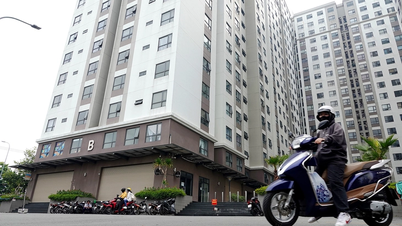



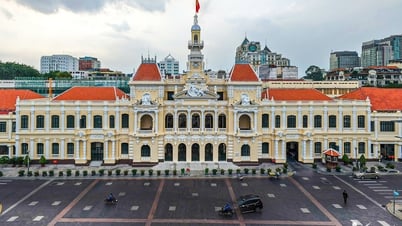


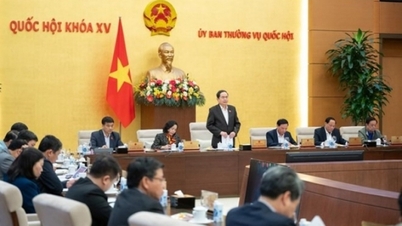

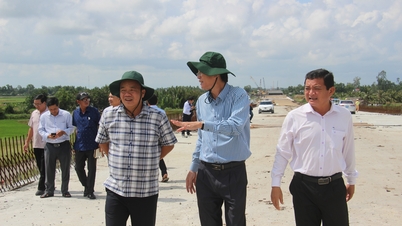

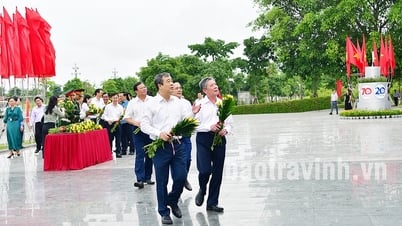













![[Photo] President Luong Cuong and Sri Lankan President Anura Kumara Dissanayaka visit President Ho Chi Minh relic site](https://vphoto.vietnam.vn/thumb/1200x675/vietnam/resource/IMAGE/2025/5/5/0ff75a6ffec545cf8f9538e2c1f7f87a)










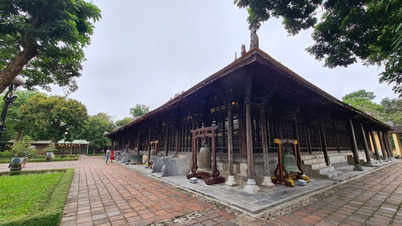


















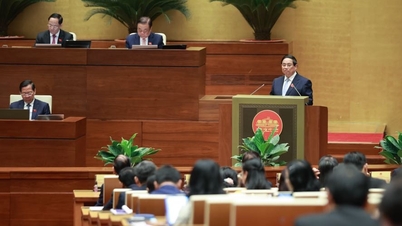

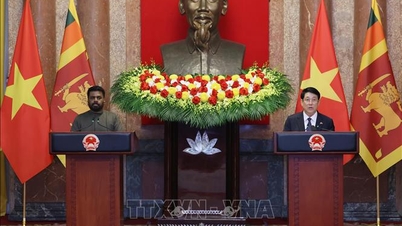
![[Photo] President Luong Cuong presided over the welcoming ceremony and held talks with Sri Lankan President Anura Kumara Dissanayaka](https://vphoto.vietnam.vn/thumb/402x226/vietnam/resource/IMAGE/2025/5/5/351b51d72a67458dbd73485caefb7dfb)

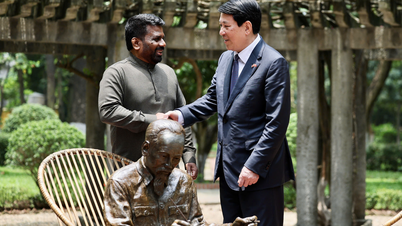































Comment (0)